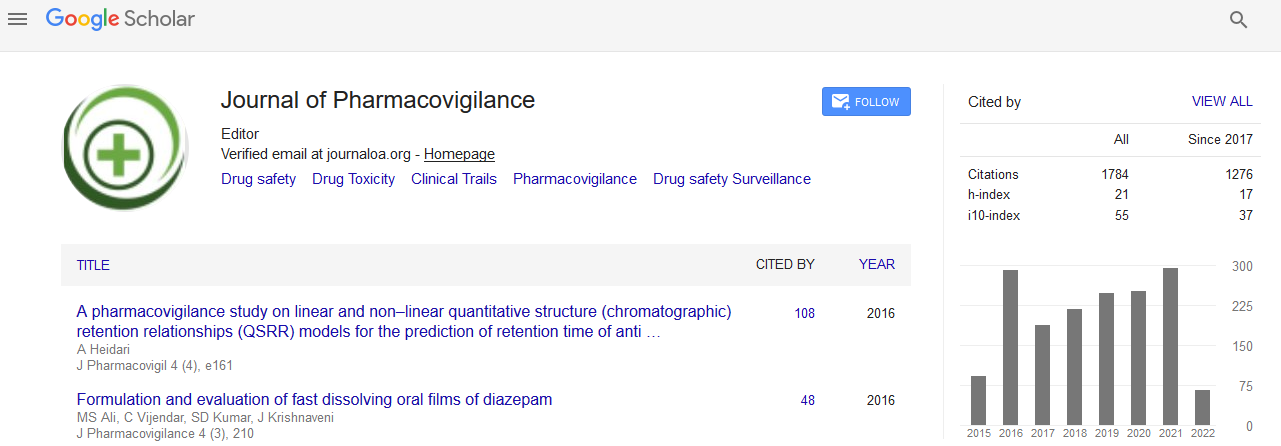Indexed In
- Open J Gate
- JournalTOCs
- The Global Impact Factor (GIF)
- RefSeek
- Hamdard University
- EBSCO A-Z
- OCLC- WorldCat
- Publons
- Euro Pub
- Google Scholar
Useful Links
Share This Page
Journal Flyer

Open Access Journals
- Agri and Aquaculture
- Biochemistry
- Bioinformatics & Systems Biology
- Business & Management
- Chemistry
- Clinical Sciences
- Engineering
- Food & Nutrition
- General Science
- Genetics & Molecular Biology
- Immunology & Microbiology
- Medical Sciences
- Neuroscience & Psychology
- Nursing & Health Care
- Pharmaceutical Sciences
Abstract
Illegal Market of Medicines in Cabo Verde: Characterization for Action
Carla Djamila Reis, Eduardo Jorge Tavares and Jailson Jesus Martins
Background: Medicines contribute to improve survival and quality of life around the world. However, inequities in access to healthcare, combined with advances in industrial technologies enabled the expansion of illegal market of medicines. This is a serious risk to health of populations and health systems because it is highly permeable to counterfeit, falsified, spurious and substandard medicines. The illegal market seems to be increasing becoming a health, social and economic problem in Africa.
Purpose: (1) To collect data regarding illegal market of medicines in Cabo Verde to assess the proportion; (2) To know the best-selling medicines; (3) To identify reasons for using it and (4) To identify determinants factors.
Method: A survey study conducted using a stratified sampling plan that included 2206 individuals (95% confidence level, 5% sampling error). The database and analysis done using Statistical Package for Social Sciences, version 20.0 (SPSS Inc).
Results: More than 25% of population purchase medicines in illegal market and the capital (Praia) reach 38.9%. The most sold were paracetamol (50.45%), ibuprofen (20.18%) and amoxicillin (17.10%). The main reason appointed was proximity. 61.2% knows it may be counterfeit but is not aware of the associated risks. For 36.3% information given by sellers is not clear. Determinants factors are income and age of individuals.
Conclusion: There is no perception of risk in purchasing medicines on illegal market. There is a need for an integrated preventive and repressive approach that includes coordinated intervention of stakeholders and covers further studies, awareness sessions on pharmacovigilance and rational use of medicines addressed to healthcare professionals and citizens.


